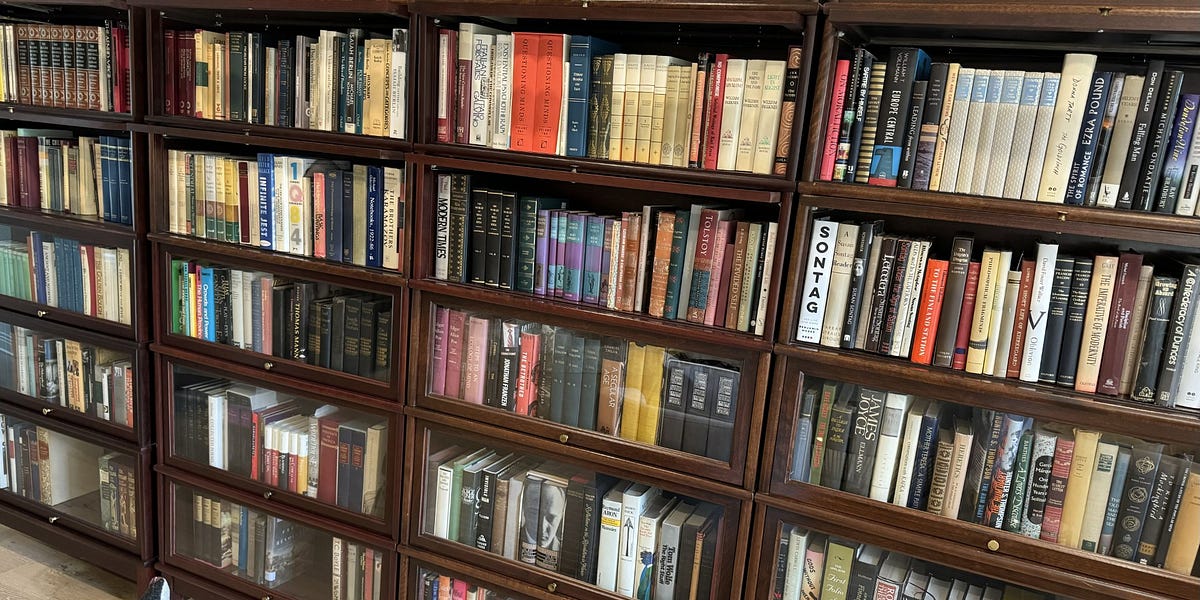A 12-Month Immersive Course in Humanities

🌈 Abstract
The article outlines a 12-month immersive course in the humanities, covering key works and thinkers from ancient Greece and beyond. The author proposes a reading plan of around 250 pages per week, along with suggestions for musical and visual art accompaniment, to provide a solid foundation in arts and culture.
🙋 Q&A
[01] A 12-Month Immersive Course in Humanities
1. What is the author's proposed reading plan for the 12-month course?
- The author proposes a reading plan of around 250 pages per week, covering key works and thinkers from ancient Greece and beyond.
- For the first week, the readings include Plato's "The Final Days of Socrates" (Euthyphro, Apology, Crito, and Phaedo) and selections from his "Republic" (Books I and VII).
- The author also suggests musical listening (Bach's "The Well-Tempered Clavier" and "Goldberg Variations") and visual art (paintings by Jacques-Louis David) to accompany the readings.
2. What are the author's constraints and considerations in designing the course?
- The author acknowledges the daunting task of covering thousands of years of cultural history in a manageable way, given the constraint of only 250 pages of reading per week.
- The author expects some complaints from readers whose favorite works were omitted or who have ideological disagreements, but invites suggestions on which works to include or exclude.
- The author stresses that the course is not mandatory and that readers are free to ignore the recommended readings if they wish.
3. What is the author's motivation for creating this 12-month course?
- The author has received numerous requests from readers and institutions to provide guidance and support for pursuing a humanities education, as many students struggle to navigate these works on their own.
- The author sees this course as a way to provide an entry path into the humanities for those who are interested, while acknowledging that a true humanities education is a lifelong pursuit.
[02] Week One Readings
1. What are the key works covered in the first week of the course?
- Plato's "The Final Days of Socrates" (Euthyphro, Apology, Crito, and Phaedo)
- Plato's "Republic" (Books I and VII)
2. What is the significance of these works in the context of the course?
- The author sees Plato's account of Socrates' final days as a powerful starting point, as it introduces the reader to the most brilliant thinker of antiquity and his pursuit of truth in the face of persecution.
- The selected books from "Republic" provide an introduction to Plato's ideas on justice and the famous Allegory of the Cave.
3. What are the author's recommendations for translations and additional resources?
- The author recommends Jowett's translations for Plato's works, but also notes the popularity of the Complete Works of Plato volume featuring Grube's translations.
- The author provides links to their own reading notes on Plato and Sappho.
[03] Week Two Readings
1. What are the key works covered in the second week of the course?
- Sappho and other ancient lyric poets
- Homer's "Odyssey" (Books 1-10)
2. What is the significance of these works in the context of the course?
- The author sees the emergence of lyric poetry, where people started singing about their inner lives and feelings, as a pivotal moment in literary and musical history, as well as a milestone in the development of human rights and personal autonomy.
- The inclusion of the first ten books of the "Odyssey" provides an introduction to one of the foundational epics of Western literature.
3. What are the author's recommendations for translations and additional resources?
- For the lyric poetry, the author recommends the Lattimore collection of Greek lyric poetry.
- For the "Odyssey", the author suggests translations by Emily Wilson, Robert Fagles, or Robert Fitzgerald.
- The author also provides links to their own reading notes on Sappho.